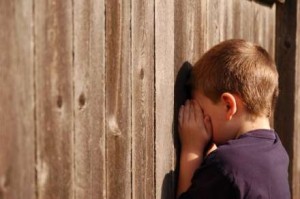
Whenever an important matter is to be undertaken in the monastery the abbot should call the entire community together…
How do we decide?
Nothing epitomizes parochial ministry like a P.C.C. (Parish Church Council). This infamous meeting is understood to be the centre of bureaucracy, pedantry and all the negative associations with institutionalized dogma which stifles creativity and growth. Although this is a common perception (sometimes through experience) I see great importance about these spaces of discernment and discussion. P.C.C.s, like Synods and other organisational meetings, can be places of collaborative ruling and creative dreaming but it relies on how you operate the vehicle.
I write this reflection after our first P.C.C. meeting of 2014. The meeting was good and productive thanks, in large part to how we have begun to shift the priorities and the character of the P.C.C. as a governing body for the congregation. Generally P.C.C.s settle into a natural place of being the red tape, officiators of all actions; if anything wants to be done, the P.C.C. need to know about it, do the risk assessments and fund it. The ideas, in this understanding, come from outside and those inside have the power to clear them or destroy them! We have begun to encourage times of creative thinking of ideas making. We now begin meetings with active engagement with Scripture through lectio divina which warms up the responsive and listening part of our brains, then there is a stimulus/problem presented and some ideas shared. After this is usually a time of sharing, challenging and reshaping. The character of this early discussion is open and fluid. It is deliberately not done behind tables with papers and pens but a conversational, non-committal approach which encourages free thinking and playful ideas.
If you re-imagine what a P.C.C. is for then it’s possible for the meetings to become a place of creative idea-making and the ‘business’/organisational activities can be done in the same way. It’s all about raising the expectations and awareness of what creativity is.
The times when these types of meetings become frustrating and tedious are when people see themselves and the P.C.C. as a ‘governing body’ as the safety net. There are people who stick so much to the letter of the law that they fail to appreciate the character of the law. This has been happening throughout history. If you see the law as restrictive then you become restrictive. If you see the law as constructive you become constructive. It is easy to fall into being ‘efficient’ and spending the time in recording and assessment rather than overseeing experiments and being creatively involved in protecting fledging projects and ideas. Why was that law written? What is the ultimate priority of this organisation? How can this law encourage that priority?
The role of overseer can often be caricatured as the ‘sensible’ one and hindering new initiatives,
Someone needs to be sensible. It’s a nice idea but you don’t appreciate how much work that will take.
This view that some people are the ‘ideas people’ and others are ‘the practical ones’ is divisive in communal discernment and creativity. It is true that we can naturally favour one role than the other but the really creative people I know have spent the time to learn the practical implications of their ideas. Equally, some of the most practical people I know birth great ideas from necessity and pragmatism. P.C.C.s can often name themselves as ‘pragmatic’ when they are the places where ideas should be shared and fostered; weaving the creativity in with the ‘rules’ is the best way.
When I was directing theatre it was a basic premise that artists need a framework within which to play. The canvas or page needs an edge and a performance piece needs a start and direction. The early part of rehearsals was about discovering the edges of this particular piece; what resources do we have? What are we bringing at this time? What do we not want to explore? Once you’ve played with the boundaries and established some framework you are free to be creative. That framework may change as necessity dictates but it needs to be established in order to know. I saw my role, as the director, as being the story keeper, the person who held and reminded the rest of the framework; not to be restrictive and dictatorial but to challenge and push the creativity. It’s too easy just to say an idea in a vacuum what makes it transformative is it impacting reality.
St. Benedict continues to portray the abbot, for me, as this story keeper.
The abbot himself must do everything according to the Rule and fearing God…
He doesn’t just demand the abbot to stick to the rules but invites creative discernment by bringing all the voices, ‘creative’ (if we can genuinely say that some are not creative) and the practical. Meetings are places where problems are solved in community. Wisdom finds flesh and reveals itself in reality.
The one major issues with P.C.C.s and Synods are the kind of people they attract in the current climate are people who, generally like to enforce the law. There’s something about the way in which they are presented and worked out that brings the Pharisee out in all of us. The rules/law is static, written on stone tablets and has supremacy over everything rather than a life-giving framework that encourages creativity and freedom.
Consider the vote for the outworking of women bishops legislation in 2012. It came down to the people in the room with their experience and desires. Outside of that room there were people who had an opinion and who cared about the judgement but the balance of power was all off.
St. Benedict is clear: gather everyone’s view, given and received in humility gained by the starting, collective principle that we are all under obedience. The abbot then decides, again with ‘consideration and justice’.
How can we protect ourselves from a dictator abbot?
You can’t. That’s why the selection of the abbot and his character is so important. That’s why he too must be under obedience to God and to be under the Rule. That’s why the monks must pray for him and he must remember that his primary calling is to present the monks under his charge as blameless before God.
Ultimately what I hear being proposed here in this chapter of the Rule is a conversation where each member is other-focused.
Individual desires have no place in the monastery.
Decisions are made in an open, non-threatening environment where all feel free to offer and add to the collective discernment. From experience it is in the space where decisions have already been made and there’s no real conversation to be had that people close down and act violently, passively or actively. In any governing body all attempts should made to communicate that there is real space to contribute and impact ones environment and reality. Those in privilege positions of power must be freed from the lie of oppression and become transparent to their intentions and desires. In this forum people are free to dream and hear the truth of God and His vision of the world He has created.
Reflection
I wonder what a P.C.C. would be like if it was run under the principles of Open Space Technology (or something similar). What difference would it make to present principles rather than ‘laws’? If those principles were agreed upon by all members and that the role of the chair of the P.C.C. was to seek creative, collective solutions to questions that were discovered within the narrative of those principles?
Almighty God, creator and judge of all that is true, guide all those in authority and positions of decision making. Bless and protect all who work towards justice and peace in places of debate and public governance. May the character of Your Son, Jesus Christ, be their model and guide as they seek to be transformed into His likeness.
Come, Lord Jesus.

 24. What is an encounter with the ‘hidden’ God like?
24. What is an encounter with the ‘hidden’ God like?




